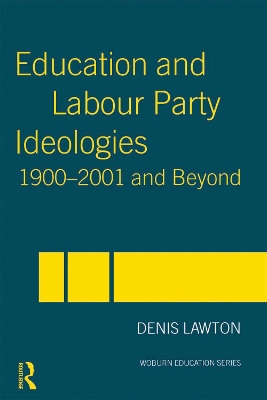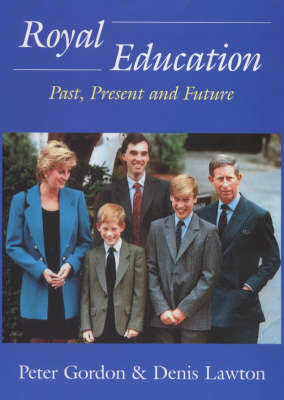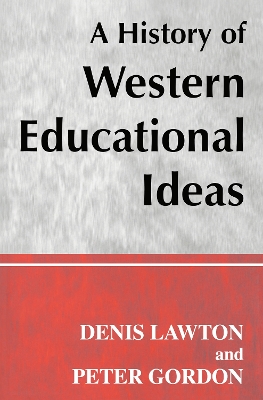Woburn Education
3 total works
Education and Labour Party Ideologies 1900-2001and Beyond
by Professor Denis Lawton
In 1997 Tony Blair broke with tradition by naming education as a major priority for the General Election Manifesto. In the past, Labour leaders had tended to give education a much lower priority. Despite this, Blair has been greatly criticised for his educational programme 1997-2001. Was he taking education away from traditional labour values of fairness and equality? Was Blair's 'Third Way' just 'Thatcherism in Trousers'?
Denise Lawton approaches such questions by analysing labour education policies since 1900 and shows that from the very beginning the labour Party lacked unity and ideological coherence concerning education. Specifically, there has always been a tension between those like the early Fabians who saw educational reform in terms of economic efficiency, and the ethical socialists whose vision of a more moral society stressed the importance of social justice in education. After an assessment of Labour ideologies in the past, this book concludes with an examination of New Labour and the 'Third Way' in education and suggests some changes that will be necessary in the near future.
There have been enormous differences in the seriousness with which education was regarded at different points in history. For example Henry VIII and his children were educated at a high point in the Renaissance, when educational ideas were regarded as important as well as exciting. Queen Elizabeth I was by any standards extremely well educated; by contrast Queen Elizabeth II's education has been described as "undemanding", because her parents wanted her to have a happy childhood.
Peter Gordon and Denis Lawton have traced changes in royal education through the centuries and related them not only to educational ideas and theories, but also to changing political, social and religious contexts.
The monarchy itself has changed as an institution: from the semi-absolute authority of the Tudors to a much more limited kind of monarchy by the end of the Stuart period (after one king had been executed and another exiled) to the constitutional monarchy of the 20th century. To what extent have such changes made any difference to royal education? What is the most appropriate kind of education for future kings and queens in our present day democracy? In this book, the authors confront these and other such questions and explore some of the answers.
A History of Western Educational Ideas
by Professor Peter Gordon and Professor Denis Lawton
It is important that all those concerned with education - parents, teachers, administrators and policymakers - should have a reasonable understanding of the present system and how it has developed, sometimes over a period of many years. This work traces the development of Western educational ideas from the Greek society of Socrates, Plato and Aristotle, to the ideas and ideologies behind some of the controversial issues in education today.
This book discusses the continuous development of educational thought over three millennia. The focus upon the history of ideas in this volume is partly an attempt to move history of education away from an approach based on 'great men' to technological, economic and political influences on ideas and beliefs. It reviews many issues, ranging from the purposes of education from the earliest times, to the challenge of postmodernism in the present century. The authors provide an accessible and thought-provoking guide to the educational ideas that underlie practice.


